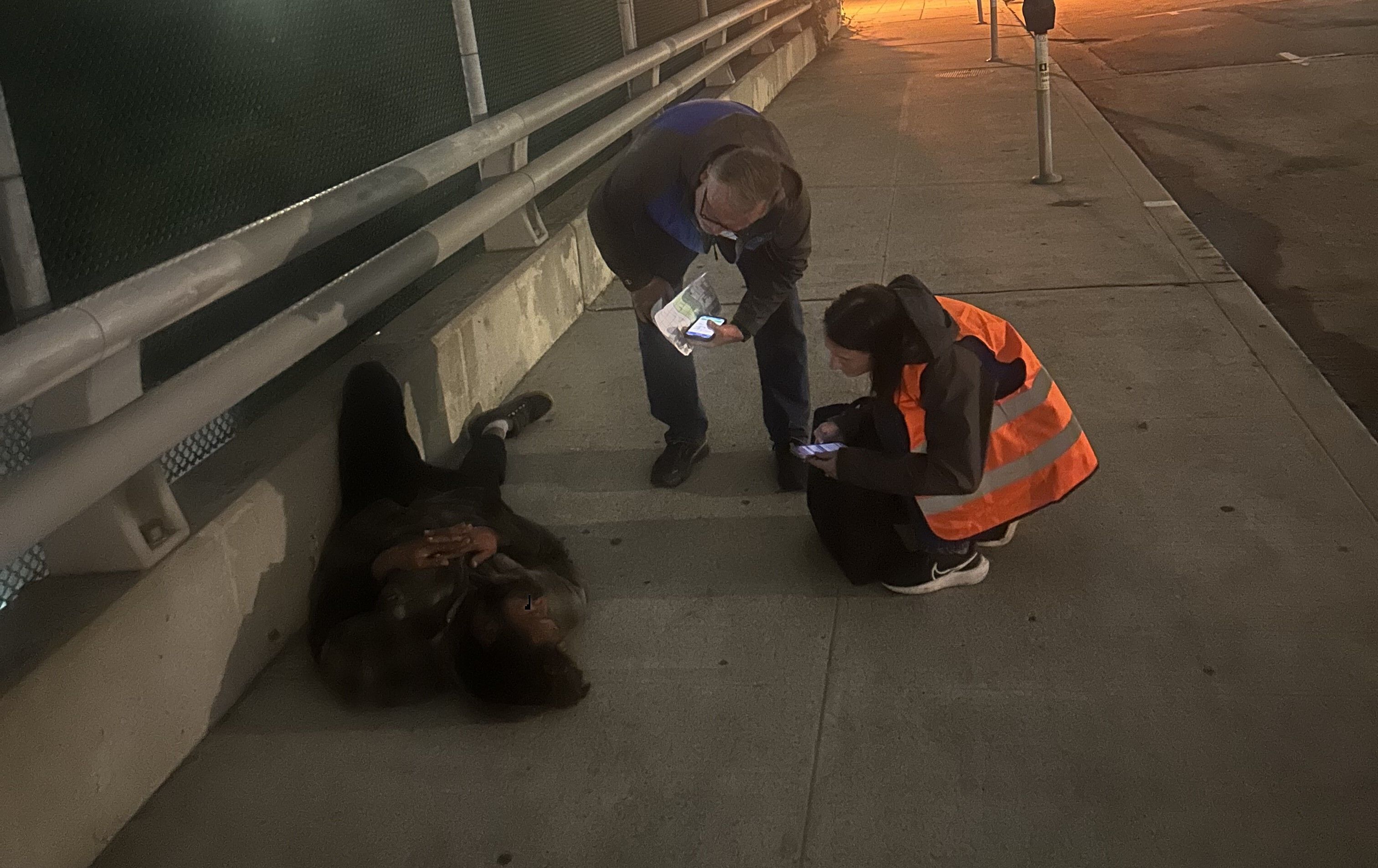
May 22, 2024
Contact: Gayle Lynn Falkenthal, APR, Fellow PRSA – Serving Seniors
619-997-2495 or gfalkenthal@gmail.com
Point In Time Count Demonstrates Need For Preventative Measures To Address Older Adult Homelessness
Serving Seniors issued an urgent call for attention to specific solutions to address the needs unique to the older adult homeless population, identified among the growth in homelessness reported in the newly released 2024 Point in Time Count (PITC) data today by the Regional Task Force on Homelessness (RTFH).
The 2024 PITC reports the number of San Diego County residents experiencing homelessness who are age 55 and older trending up at 30% of those counted, up from 29% in 2023 and 25% in 2022. The continuing trend reinforces information first reported in the 2021 Serving Seniors Needs Assessment.
“Almost half of all older adults experiencing homelessness are homeless for the first time in their lives, and nearly half are disabled,” said Serving Seniors CEO Paul Downey.
“We also see a 15% increase in adults over 55 living in their vehicles, which is a troubling trend. One in five older adults experiencing homelessness is using a car or other vehicle as housing.” Living in a vehicle is a common stop on the path to losing all shelter.
The geographic shifts in populations of people experiencing homelessness to East and South County communities demonstrates the effect of the City of San Diego camping ban. It puts people further away from accessible services, such as the Gary and Mary West Senior Wellness Center at 4th and Beech in downtown San Diego.
“The camping ban has merely redistributed the population of people who are homeless. Spreading out the problem is not humane nor cost effective,” noted Downey.
Focus on Prevention and Housing Effective In Solving Older Adult Homelessness
Economic forces such as insufficient retirement income, unaffordable housing options, the inability to continue working, or a single unexpected crisis such as job loss or serious illness are the primary drivers of homelessness among older adults.
Serving Seniors presses civic leaders to emphasize proven, cost-effect prevention measures to prevent older adults from losing housing, including shallow rental subsidy programs and one-time diversion funding.
At the urging of Serving Seniors, both the San Diego County Board of Supervisors and the San Diego City Council established pilot programs providing shallow rental subsidies to qualified older adults to establish the viability of this approach.
The shallow rental subsidy approach prevents homelessness instead of chasing solutions after the fact. This approach provides a more humane solution – and it saves money. Estimates provided by County staff for emergency shelter operating costs including services range between $2,500 to $6,000 per month depending on the type of services offered.
Often, one-time diversion funds can provide a safety net to an older adult on the brink of eviction due to job loss, death of a spouse, or a medical emergency, allowing them to stay in their current homes.
The long-term solution is to lower the cost of building affordable housing and streamlining the timeline for approvals and construction to make more options available.
“Affordable housing is the end goal, but people need help now,” said Downey. “We have a golden opportunity to address several easily preventable problems through targeted leveraging of existing resources.
“We remain optimistic despite the severity of the numbers,” said Downey. “Shallow rental subsidy programs and other resources targeting older adult homelessness can help people quickly, allowing us to focus other resources on those who need more significant help.”
From a taxpayer perspective, shallow rental subsidies are more cost-effective than street clean-ups. They offer a viable opportunity to help those struggling to help themselves to lift them up. From a humanitarian standpoint, Serving Seniors sees these efforts as a must.
About Serving Seniors
Founded in 1970, Serving Seniors is a 501(c)(3) nonprofit organization based in San Diego, California, dedicated to serving low-income adults aged 60 and over. A leader in senior advocacy and programming, Serving Seniors has created an innovative model of comprehensive services including nutrition meals, housing, health and social services and lifelong learning opportunities to thousands of seniors in need. It is the largest provider of meals to seniors in the county, and one of the only organizations in the nation providing a robust range of services to vulnerable, at-risk older adults.
Serving Seniors President and CEO Paul Downey has been instrumental in the organization’s growth over the past 29 years. Since being appointed the role in 1995, Downey has guided the nonprofit’s innovative efforts to provide supportive services focused on keeping low-income seniors healthy and independent. Under Downey’s leadership, Serving Seniors has grown to provide over 1.4 million nutritious meals and coordinated services to 7,000 older adults each year. Read Serving Seniors’ groundbreaking report, Senior Homelessness: A Needs Assessment.



























